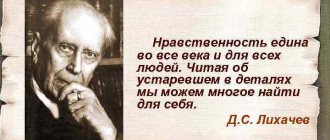Many residents of the central zone or southern regions of Russia imagine the North as some kind of endless snowy expanses, where only the Chukchi roaming on reindeer live. In fact, this region is colorful and multifaceted. As do the approximately 40 peoples and ethnic groups that inhabit it. They all have their own customs, traditions, rituals, as well as a unique northern cuisine.
What do the different peoples inhabiting the Russian North eat, and what do their gastronomic preferences primarily depend on? This is discussed in this material.
What determines the gastronomic preferences of different northern peoples?
Harsh climatic conditions force many peoples of the North, who lead a traditional way of life that has been established for centuries, to completely trust the nature around them. Northerners often live off the natural resources available in their natural habitat. At the same time, these resources provide absolutely all the needs of people: housing, fuel, transport, clothing and, most importantly, food.
Indigenous people of Yamal / Photo: 56thparallel.com
The indigenous northerners get their food from both livestock raising and hunting wild animals, fishing, as well as collecting delicacies and “semi-finished products” - wild plants and roots, bird eggs, algae and shellfish.
Thus, the diet of the peoples of the North directly depends on long-term traditions passed down from generation to generation and the natural resources of their habitat. What do residents of different northern regions of Russia eat?
Popular topics today
- Essay on the topic World without war
I wake up in a soft and warm bed. Mom kisses me on the cheek, smiles and calls me to have breakfast. On the table are my favorite sandwiches and hot aromatic tea. I run to school, my cozy class, my beloved friends are waiting for me.
The writer writes his own works in the genre of fairy tales for several purposes, including passing censor control and realizing his satirical talent
Anton Pavlovich Chekhov was born at the end of January 1890. The writer was born into a large family, where all the children were brought up in strictness and discipline. Show off your creativity
The collection “Mirgorod” is considered to be a continuation of “Evenings on a farm near Dikanka”, but the feeling of emptiness that they are trying to hide behind noise becomes deeper and more chronic.
The main character of the play is Doctor Faustus, who personifies the dreams and dreams of many people of his time. And first of all, it is knowledge of the world.
Taiga zone of Central Siberia and Sayan
The main indigenous inhabitants of the taiga zone of Central Siberia are 2 Tungus-speaking peoples - Evens and Evenks. And if most Evens live “compactly” in the Far Eastern regions, then the habitat of the Evenks is wider. They live in the vast expanses of the Siberian taiga from the Taimyr Peninsula to Sakhalin. Moreover, by and large, the economy of both of these peoples is quite similar.
Modern Evenks / Photo: pinterest.com
Reindeer helped both Evens and Evenkis settle and live very successfully in such wide taiga expanses. However, unlike residents of more northern tundra regions, reindeer herders of the Siberian taiga are fed not so much by deer as by the surrounding nature. Ungulates play the role of “standard” transport in these regions - Evens and Evenkis most often ride them.
However, one of the most “strategic” for the residents of these regions is the product that they receive from their animals - reindeer milk. From the Sayan Mountains and further south, in the herds of nomadic shepherds, in addition to deer, horses, goats, sheep, cows, yaks, and even camels begin to predominate. Like their northern neighbors, “southerners” also widely use animal milk in cooking.
A woman prepares “suttet-tsai” / Photo: russiadiscovery.com
Milk is consumed in different ways. It is frozen or boiled to a thick jelly. Cheese is made from milk, which is then eaten with “suttet-tsai” - milk tea. Also, when boiling, local berries and herbs are added to the milk: cloudberries, wild garlic, wild onions, moss, etc. Naturally, the kitchen cannot do without meat obtained from hunting. Traditionally it is roasted over a fire or boiled.
Among the parts of game, brains, kidneys and tongue are considered delicacies among the inhabitants of this Siberian taiga region. Previously, local people quite often ate them raw, but now they still prefer preliminary heat treatment. Fish caught in numerous rivers and lakes is prepared in the same way as meat.
Quotes about unity
Friedrich Engels
Where there is no community of interests, there cannot be unity of goals, not to mention unity of actions.
Avatar: The Last Airbender
Everything in the world is connected. Even the separation of the four elements is an illusion. If you open your mind, you will understand that all elements are a single whole, part of the whole. Even metal is part of the earth, just purified earth.
Fearless (Huo Yuan Jia)
By acting together, we make both ourselves and our people stronger.
Helen Keller
There is only so much we can do alone. Together we can move mountains.
Danna Kaufman. Dear Prince Charming
This is exactly what Valerie was missing. Closeness and mutual understanding, in which people complete each other's incomplete sentences, share a common baggage of experience, so that a random word awakens the same memories in them, brings to life the same funny associations. This is a union that does not imply physical attraction. Soul kinship.
Mark Twain
peace and harmony happiness unity unity
Al Quotion. Improvisation spare part
Probably, feeling the elasticity, flexibility, strength and softness of water, hugging you, dissolving the usual framework, penetrating, extinguishing sounds, smells, creating new facets of meaning, the easiest way is to feel your unity with this world. You are a part of him, and he is your continuation. And the thin line between you is erased for a second. You just need to have time, without opening your eyes, without frightened animals striving for a breath of air, without remembering everything you knew, everything you believed in, to have time to look beyond the line that is opening up to you.
world, universe state water unity
James Clemens. Witch's Fire
It takes a man and a woman to give birth to a child. Who is strong in such an alliance and who is weak? It's like two sides of the same coin.
strength weakness men women family unity
Eckhart Tolle
Being in unity with yourself, it is impossible to even think about conflict.
Avatar: The Last Airbender
We are all one people, but we live as if we are different.
Lapland
Lapland is an area that covers the northern European territories of Norway, Sweden, Finland, as well as the Russian part of the Kola Peninsula. The main indigenous people living in Lapland are the Sami. Or, as they used to be called in Russia, “Lapps”. The main sources of food for this people were collecting edible berries, mushrooms and roots, as well as hunting, fishing and reindeer herding.
Sami of Lapland. Beginning of the 20th century / Photo: uarctic.org
The Sami's methods of preparing meat and fish are the same as those of the inhabitants of the Siberian taiga. In addition, venison and fish were often dried here and used as natural “canned food” on long hunting trips. About a century and a half ago, Europeans brought flour here. Since then, the Sami consider it almost “their dish” and always use it as a batter for frying fish and meat.
Since real flour is still in short supply here, the locals have learned to make it from pine sapwood. The dried fruit was crushed and added to flour. Often this “powder” was used instead of flour. Herbal teas can be considered a traditional drink of the Sami. Often tea was also made from dried chaga mushrooms. Locals consider it tonic and general strengthening for the whole body.
Almost all northern peoples have tea as their main drink / Photo: dailymail.co.uk
Bear meat was a real delicacy for the Sami. Like venison, it was fried, boiled, dried and dried. In ancient times, the hunter who killed the “clubfoot” had the honor of being the first to eat the most delicious part of the carcass, in the opinion of the Sami – raw bear liver. Deer tongue and bone marrow were also eaten raw.
Statements about the nation
Honore de Balzac
French writer (1799-1850).
| The future of the nation is in the hands of mothers.[61] |
Charles Fox
English politician (1749-1806).
| For a nation that values its honor - or even its interests, inseparable from honor - it is very important to secure from neighboring nations a good opinion in everything that concerns justice, generosity, moderation.”[62] |
Bernard Show
Outstanding Irish playwright (1856-1950).
| A healthy nation is as oblivious to its nationality as a healthy person is to its spine. But if you undermine its national dignity, the nation will think of nothing else but to restore it. She will not listen to any reformers, any philosophers, or preachers, until the demands of the nationalists are satisfied. She will not engage in any business, no matter how urgent, except the cause of reunification and liberation.[63] |
Joseph Ernest Renan
French philosopher and writer (1832-1892).
| The nation is the soul, the spiritual principle... Like the individual, the nation is the goal of many efforts and sacrifices.[64] |
John Ruskin
English writer (1819-1900).
| A low nation crucifies or poisons its wise men and leaves its madmen to roam free and perish in the streets. A wise nation obeys the first, restrains the second, and loves all.[65] |
Taiga zone of the Far East south of Chukotka
Despite the fact that these territories are inhabited mainly by reindeer herding peoples, one of the most popular food products here is fish. It is eaten both fried or boiled, and pickled. This fish is prepared in the same way as “surströmming” in Sweden. Naturally, not every visitor or tourist will be able to eat or even try such a delicacy. But for locals, pickled fish is a completely ordinary product.
Many northern peoples dry or dry fish / Photo: culturalsurvival.org
Another fish delicacy, yukola, is much more popular. This is a dried fish fillet. By the way, venison is often used as a “raw material” for yukola. Yukola is eaten both as a separate dish and as a “meat dressing” for broths.
On the Pacific coast, the peoples living in this region have for centuries been significantly dependent on passing marine fish for food, as well as mammals that live in coastal waters. Thus, among the Nivkhs, one of the delicacies, and even in some cases a ritual dish, was “mos” or “mos” - a fatty, rich jelly made from fish skin. The Nivkhs also widely consumed the meat of marine mammals: seals and whales.
Statements by Russians about the people
Nikolay Berdyaev
Russian religious and political philosopher (1874-1948).
| All nations have an irresistible tendency to crucify their prophets, teachers and great historians.[1] |
Maxim Zvonarev
Author of aphorisms.
| Every nation has a history that suits its imagination.[2] |
Mikhail Genin
Russian comedian (born 1927).
| When will the people be shown such a spectacle that they will stop thinking about their daily bread?[3] |
Vladimir Kolechitsky
Russian journalist, writer (born 1938).
| When people are silenced, they become thinkers.[4] |
Fedor Dostoevsky
Russian writer, thinker, philosopher and publicist (1821-1881).
| The measure of a people is not what it is, but what it considers beautiful and true, for which it sighs.[5] |
Vladimir Voinovich
Russian prose writer, poet and playwright (1932-2018).
| A rally is an event when a lot of people gather and some say what they don’t think, while others think what they don’t say.[6] |
Evgeniy Yevtushenko
Russian poet (1832—2017).
| People - who don't lie to themselves. The people are the enemy of spiritual laziness. Only the one who thinks is the people all the rest are the population.[7] |
Fazil Iskander
Abkhazian and Russian prose writer (1929-2016).
| The people cannot and should not live by a distant goal, because a distant goal always serves as an excuse for immediate fraud.[8] |
Vladimir Dal
Russian writer and lexicographer (1801-1872).
| Neither nickname, nor religion, nor the very blood of ancestors makes a person a member of one or another nationality... Whoever thinks in what language belongs to that people.[9] |
| Only kind and talented people can maintain majestic calm of spirit and humor in any, even the most difficult, circumstances. Proverbs, sayings, jokes, born in the depths of the masses, speak of a healthy, powerful organism. |
Nikolay Dobrolyubov
Literary critic (1836-1861).
| A person who hates another people does not love his own.[10] |
Chukotka
One of the most famous dishes of the peoples inhabiting Chukotka is fermented meat. In Chukchi it is called "kymgyt", but most people know it by its Eskimo name - "kopalkhen". Despite the claim that it is supposedly “rotten meat,” copalchen is most likely fermented meat. The above-mentioned Swedish “surströmming” is prepared in approximately the same way. And in Russia - “Pechora” or “Zyryansky” fish salting.
The Inuit divide the kopalchen among families. Canada, 1999 / Photo: ncl.ac.uk
Naturally, without habit one can hardly even try such a dish. Although locals and even many tourists enjoy eating copalchen. Rumors about its “deadliness” for those unaccustomed to it are most likely exaggerated - you can hardly die from a small piece of such fermented meat. The maximum that a tourist can expect after tasting copalchen is an upset stomach. Unless, of course, the gag reflex allows you to swallow even a piece of this “delicacy”.
In addition to kopalchen, the main “suppliers of provisions” for the indigenous inhabitants of Chukotka have always been deer and marine mammals. Moreover, the harsh conditions taught the locals to use food supplies to the maximum. Everything was eaten here: skin, bone marrow, tendons and other parts of animal carcasses. Among the “best-of-the-best” delicacies of the peoples of Chukotka one can highlight “vilmullirilkyril” (a soup made from the offal and blood of a deer), “mantak” (whale fat with skin), and also raw seal eyes.
Great classics about the Russian people
Great classics about Russia and the Russian nation:
“The Russian government must keep its people in a state of constant amazement...” (Saltykov-Shchedrin)
“It seems to a Russian that all his neighbors offend him, do not worship his greatness enough and are plotting against him in every possible way. He accuses everyone from his household of trying to harm him, to separate from him and go over to his enemies - and he considers all his neighbors to be his enemies.” (Vladimir Solovyov)
“The whole of Russia has been seized by the syphilis of patriotism!” (A.I. Herzen)
“This great part of Europe and Asia, now called Russia, in its temperate climates was originally inhabited, but by wild peoples plunged into the depths of ignorance, who did not mark their existence with any historical monuments of their own...” (N. M. Karamzin)
“We have given the world nothing, we have not taught it anything, we continue to live only to serve as some important lesson for subsequent generations.” (P. Ya. Chaadaev)
“When and what bureaucrat was not convinced that Russia is a pie that you can freely approach and snack on?” (Saltykov-Shchedrin)
“In contrast to all the laws of human society, Russia moves only in the direction of its own enslavement and in the direction of the enslavement of other peoples.” (A.I. Herzen)
“Our worker only knows one thing - to get drunk like a pig, drunk and ruin everything you give him. He will drug the horses, tear off a good harness, change a studded wheel, drink it, and throw a pin into the thresher to break it. He is sick of seeing everything that is not according to him. From this the entire level of economy has descended.” (L.N. Tolstoy)
“We, Muscovites, made the Kyrgyz, Chemeris, Buryats and others drunk. They robbed Armenia and Georgia, even banned worship in the Georgian language, and robbed the richest Ukraine. To Europe we gave the anarchists P. Kropotkin, M. Bunin, the apostles of ruin and butchery Shigalev, Nechaev, Lenin, etc. Moral filth, Muscovy is a monster that even hell would disdain and spew onto the earth.” (V. Rozanov)
“For a Russian man, honor is just an extra burden...” (M.A. Bulgakov)
“I propose to always write the name of the country “Russia” exactly like that, in quotation marks, so much has it compromised itself over a thousand-year history, in which there was not a single bright spot, but only the oppression of its own dark, wild and downtrodden people and the suppression of the desire for freedom of others... The “Russian Empire” was not a national Russian state at all. It was a meeting of several dozen peoples... united only by common exploitation on the part of the landowners, and united, moreover, with the help of brutal violence.” (M. N. Pokrovsky)
“The Russian Empire was called a prison of nations. We now know that this name was deserved not only by the Romanov state, but also by its predecessor, the patrimony of Kalita’s descendants. Already the Grand Duchy of Moscow, not only the Kingdom of Moscow, was a prison of nations. Great Russia was built on the bones of foreigners, and the latter are unlikely to be much consoled by the fact that 80% of their blood flows in the veins of Great Russians. Only the final overthrow of Great Russian oppression by the force that fought and is fighting against each and every kind of oppression could serve as some kind of retribution for all the suffering that this oppression caused them.” (M. N. Pokrovsky)
“In Russia, in the intelligent classes, there cannot even be a person who does not lie... In our country, the vast majority lie out of hospitality. In Russia, the truth almost always has a completely fantastic character.” (F. Dostoevsky)
“We have nothing real, but everything is surrogates, likenesses, quasi-ministers, quasi-enlightenment, quasi-society, quasi-constitution, and our whole life is only quasi-una fantasia. In other societies, everyone lives, working and partly living, partly making money and developing. In Russian, some only make money, others make a living, and no one lives or works.” (V. Klyuchevsky)
“Our society is as despicable as it is stupid, it lacks public opinion and is dominated by indifference to duty, justice, law, truth, cynical contempt for the thought and dignity of man.” (P. Chaadaev)
“We are at least two hundred years behind, we still have absolutely nothing, there is no definite attitude towards the past, we only philosophize, complain about melancholy or drink vodka.” (A.P. Chekhov)
“Heavy Russian spirit, you can’t breathe and you can’t fly.” (A. Blok)
“Russians are a people who hate freedom, deify slavery, love shackles on their hands and feet, love their bloody despots, do not feel any beauty, are dirty physically and morally, have lived for centuries in darkness, obscurantism, and have not lifted a finger towards anything. human, but always ready to captivate, to oppress everyone and everything, the whole world. This is not a people, but a historical curse of humanity" (I.S. Shmelev)
“If Russia had failed, there would have been no loss or unrest in humanity.” (Ivan Turgenev)
“When a Russian cannot discover at least some intelligence in himself, he speaks in inky language, calls for help from his fellow tribesmen, whom he calls brothers in mind and all of them represent Russia on their behalf.” (L. Tolstoy)
“The Russian mind shows itself most clearly in stupidity” (Vasily Klyuchevsky)
“To lie to a Russian is to blow your nose. Their lies come from their slave nature. A people who have never known or spoken the truth is a people of spiritual and physical slaves. "(N.M. Karamzin)
“If I fall asleep and wake up in a hundred years and they ask me what is happening in Russia now, I will answer: they drink and steal.” (Saltykov-Shchedrin)






